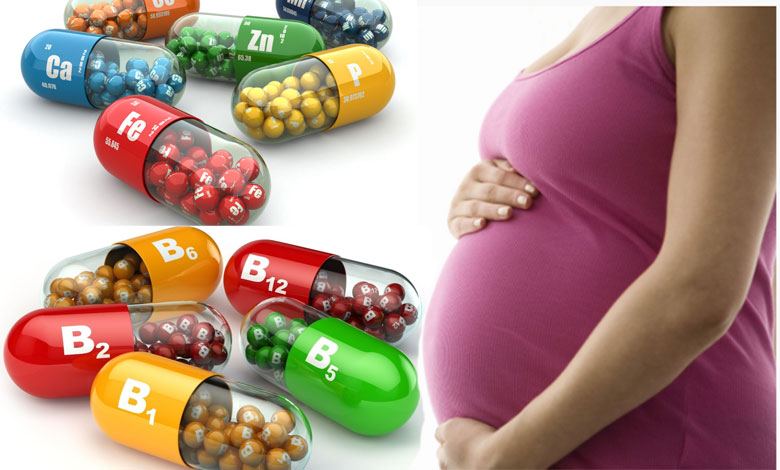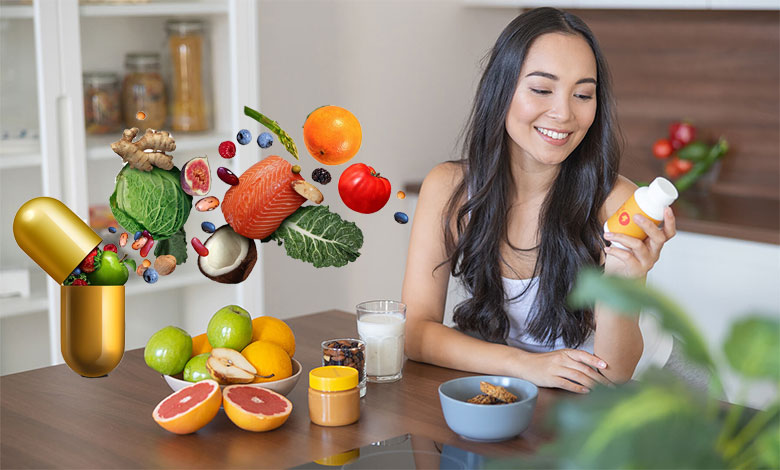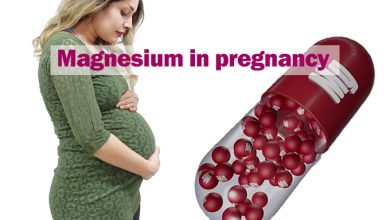What are the useful vitamins in pregnancy?

During pregnancy, the body undergoes many physical and hormonal changes. This is where nutrition during pregnancy becomes very important. Every food you eat affects your health and that of your baby. To make sure you’re getting enough of all nutrients. You should eat a healthy and balanced diet. Food is the first source of nutrition for the baby in the womb.
Therefore, you should eat foods rich in nutrients. Proper nutrition enhances the growth of the child. In this article, we will examine useful vitamins in pregnancy and discuss in detail vitamins during pregnancy.
Nutrition during pregnancy and increasing nutrients and the body’s need for nutrients increases during pregnancy. We all know the famous saying about the nutrition of pregnant women. That a pregnant woman should eat as much as two people.
This statement is not correct at all, But it must be said that pregnant women need more micronutrients and macronutrients to keep themselves and their babies healthy.
Micronutrients are dietary compounds such as vitamins and minerals that are needed only in small amounts. Macros are nutrients such as carbohydrates, proteins, and fats that provide calories or energy to the body.
How many nutrients does a pregnant woman need?
Daily nutrient requirements for a pregnant woman: 300 extra calories in the second and third trimesters, calcium 1,200 mg, of folate, 600 to 800 micrograms, iron, 27 mg, many pregnant women meet this need by choosing a varied, healthy diet.
To get all the nutrients you need, it’s essential to eat a variety of healthy food groups every day. In fact, all meals should have at least three food groups.
Each food group caters to the needs of the body. For example, grains are a rich source of energy; Fruits and vegetables are rich in antioxidants, fibers, and water-soluble and fat-soluble vitamins; Meat, nuts, and legumes provide the body with proteins, folic acid, and iron; Dairy products are rich sources of calcium and vitamin D.
What vitamins are useful in pregnancy?
If you don’t get the substances you need from the food groups (carbs, proteins, and fats), your body won’t function well. The goal is to eat a variety of healthy foods during pregnancy. Replace junk processed foods with low-fat and natural foods.
For example, French fries and sodas have no nutritional value. Use more fresh fruits, vegetables, and lean proteins such as chicken, fish, beans, or lentils.
This doesn’t mean you should avoid all of your favorite foods while pregnant, But you should balance your diet with nutritious foods so you do not lose any important vitamins and minerals. The following daily nutritional supplements will help you meet your nutritional needs during pregnancy.
1-Proteins are essential for the proper development of fetal tissues, including the brain.
Protein also helps in the growth of breast and uterine tissue during pregnancy and plays an important role in increasing blood supply. That is, by eating it, more blood is sent to the baby.
You should eat three servings of protein a day. Good sources of protein include lean beef; Beans; Chicken; Salmon; Nuts; peanut butter; cheese cream.
2- Calcium helps build the baby’s bones and regulates the body’s fluid intake.
Pregnant women need at least three servings of calcium a day. Five servings per day are recommended for pregnant and slim women. 99% of calcium is found in bones and teeth. The remaining 1% of calcium is present in the blood, extracellular fluids, and within tissue cells, which are responsible for regulating many important metabolic functions.
Considering the role of calcium in pregnancy for bone and tooth growth, muscle function, and neural development of the fetus, the mother should include dietary sources of calcium in her daily schedule. About 33 grams of calcium are stored during pregnancy. 25 grams accumulate in the skeleton of the fetus and the rest in the skeleton of the mother.

to be used possibly as a source of calcium in feeding during breastfeeding. The largest amount of embryonic storage occurs in the last quarter of pregnancy. With the lack of calcium during pregnancy, the risk of maternal osteoporosis increases in the following years and increases the risk of pregnancy poisoning.
Milk and other dairy products, dark green leafy vegetables, broccoli, small fish such as sardines that are minced with bones, dried figs, almonds, and sesame are sources of calcium. Remember that the body needs vitamin D to fully absorb calcium. Good sources of calcium include milk; Yogurt; cheese; Cabbage; egg; pudding.
3- Folate is also known as folic acid.
It plays an important role in reducing the risk of neural tube defects. Lack of folate leads to acute problems in the baby’s brain and spine. A pregnant woman should receive 600 to 800 micrograms of folate per day. Folate-rich foods include liver; Nuts; dry beans and lentils; egg; nuts and peanut butter; dark leafy greens.
4- Iron:
The presence of iron is necessary for the production of red blood cells, the increase in hemoglobin, growth, and development, and the supply of fetal liver reserves.
The greatest need for iron occurs after the twentieth week of pregnancy. That is when there is the greatest request of the mother and fetus. The amount of iron needed by the fetus during pregnancy is 300 mg. The mother needs 500 mg and the total iron intake is 400 mg, the fetus receives 300 mg of iron.
This is the mother who suffers from iron deficiency and the resulting complications due to a lack of proper nutrition during pregnancy. Naturally, due to the great need for iron between the mother and the fetus, iron tablets are prescribed to all mothers from the fourth month of pregnancy.
It is necessary to consume foods rich in iron such as red meat, eggs, peaches, and raisins during pregnancy. But avoid using the liver during this time.
Iron works with sodium, potassium, and water and increases blood flow. In addition, it provides enough oxygen for you and the baby. Pregnant women should get 27 mg of iron per day.
Useful sources of this food include dark leafy vegetables, citrus fruits, enriched bread and cereals, beef and chicken, eggs, and dried fruits.
5- Iodine :
The amount of iodine required by the body in nutrition during pregnancy increases due to the role of iodine in the body’s metabolism, energy production, and fetal brain development. Iodine deficiency during pregnancy leads to complications in the baby.
Iodine is found in dairy products, eggs, vegetables, and shellfish. But considering that in our country plant and animal foods are low in iodine; To prevent iodine deficiency during pregnancy, you should use small amounts of refined iodized salt in cooking.
6 -Zinc is needed for brain development, wound healing, and skin and hair health.
It is one of the most important nutrients needed during pregnancy. During pregnancy, zinc helps the development of fetal organs, the skeleton of the brain, eyes, and the immune and nervous systems.
Zinc deficiency is highly teratogenic and leads to congenital malformations, abnormal brain development in the fetus, and abnormal behavior in the newborn.
Low levels of zinc also have negative effects on vitamin A status. Whole grains, legumes, and nuts are good sources. The most available form of zinc is found in red meat and poultry. In general, zinc intake has a good correlation with protein intake, just like iron intake.
7- Fiber is a part of edible fruits, vegetables, and seeds, especially legumes and grains, which cannot be digested by the human body.
High-fiber foods help you feel full and make you eat less food and fat. By increasing stool bulk, fiber makes passing stools quick and easy, preventing constipation. It also reduces the chance of intestinal diseases such as colon cancer and hemorrhoids.
In the intestine, fibers reduce the absorption of cholesterol and sugars, thus reducing the risk of cardiovascular disease and diabetes. Our advice for expectant mothers is to consume whole grain bread, whole grains, green and yellow leafy vegetables, and fresh and dried fruit to provide minerals, vitamins, and fiber.
In addition to eating right, you should drink at least eight glasses of water a day and take prenatal vitamins. It’s hard to get enough nutrients, including folate and iron, from food alone. So talk to your doctor to make sure which vitamin supplement is best for you and your baby to stay healthy.
And finally
from the very beginning of your pregnancy, ask your midwife to help you with nutrition during pregnancy. Do not forget about useful vitamins during pregnancy. Take your pregnancy nutrition seriously and don’t neglect it. Remember that your and your child’s health depends on what you eat during this period.
